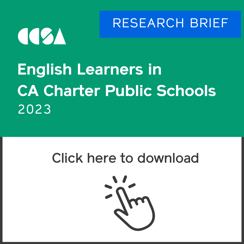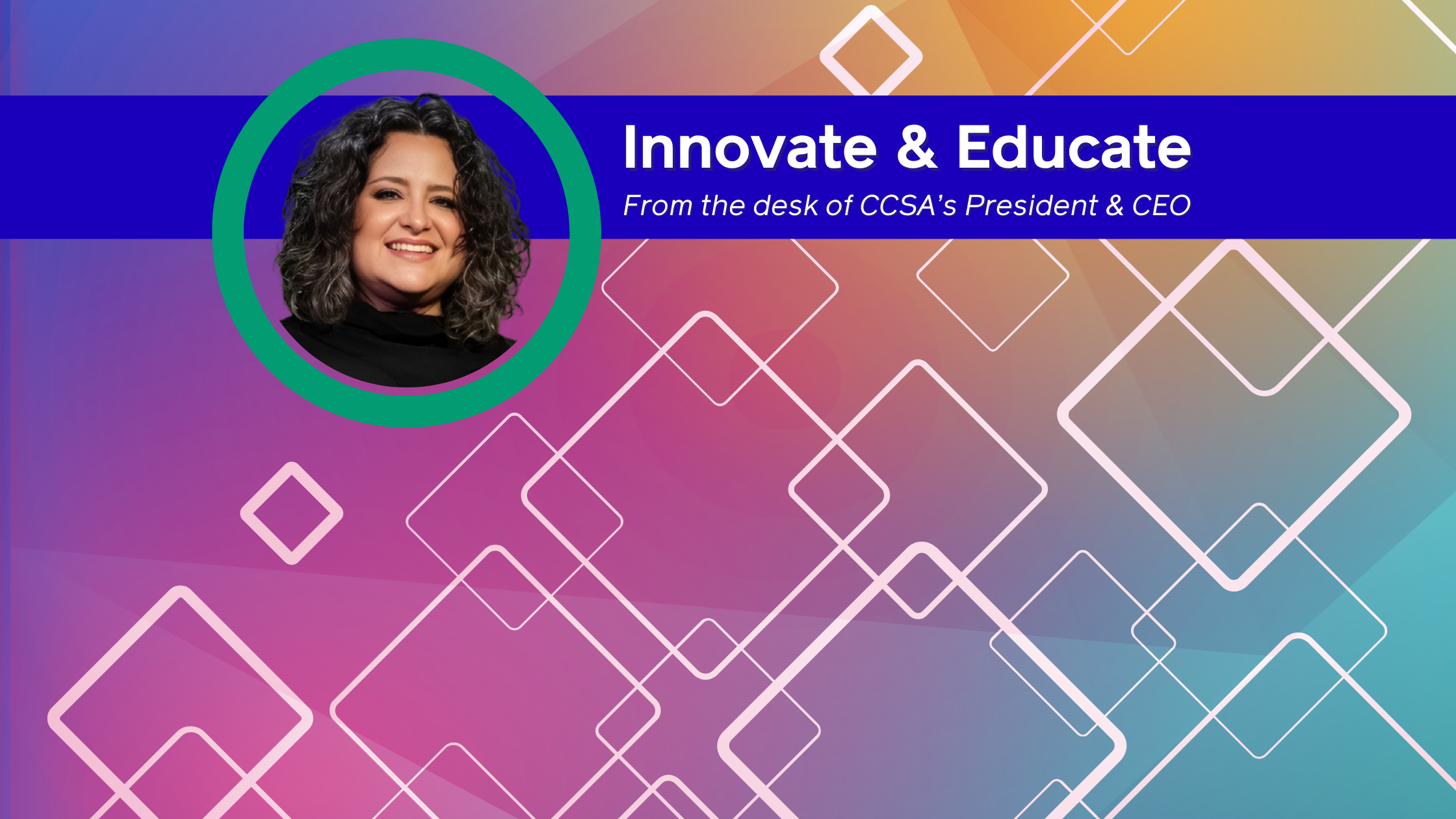CCSA concluded its celebration of Hispanic Heritage Month last week by releasing a research brief that offers new insight into English learners who attend California charter public schools.
An English learner (EL) is an individual who has limited proficiency in the English language. Within California’s K-12 system, EL students speak English as a second language. Most come from immigrant families or families with strong ties to a country other than the United States.
The vast majority of students who are classified as ELs in California charter schools have ties to Mexico, Central America, or South America. As such, their common native language is Spanish.
Based on CCSA’s new research brief, English Learners in California Charter Public Schools 2023, the charter sector serves 103,764 ELs, representing 15% of charter public school enrollment. That number has increased by about 2,000 students, or 2%, from the previous year.
The greatest percentage of English learners attend charter public schools in the Los Angeles Unified School District (LAUSD). In fact, 24,909 ELs attend a charter in LAUSD, representing 21% of total charter enrollment in that district.
Other districts with large concentrations of English learners include Oakland Unified (5,043), San Diego Unified (4,698), and Chula Vista Elementary School District (2,909).
When analyzing academic performance, our data shows that all public schools — both charter and district-run public schools — have more work to do to ensure ELs become proficient in English and progress academically. That said, the research brief highlights bright spots in California’s charter school movement:
- A sizable percentage of English learners enrolled in charter schools have achieved proficiency and are considered Reclassified Fluent English Proficient.
- English learners who attend charters are closer to meeting state standards than ELs at traditional public schools.
- Alliance Virgil Roberts Leadership Academy and Puente Charter School are two CCSA member schools that are innovating and overcoming systemic obstacles to support the needs of their EL population.
To understand how charters can better support their EL students, let’s look at the two schools identified in the research:
Alliance Virgil Roberts Leadership Academy
Alliance Virgil Roberts Leadership Academy is a charter middle school (grades 6-8) in South Los Angeles. This school strives to “provide world-class educational services to address the unique needs of each student.”
Alliance does this by prioritizing professional development for staff to support its English learners’ specialized needs. For example, the charter school’s administrative team hosts quarterly professional development sessions focused on “providing ELD teachers and ELD coordinators/leads with the tools, strategies, and best practices to support EL scholars to increase their English language proficiency.”
This charter also fosters an “assets-oriented mindset” by doing three things: 1) Valuing and affirming their own, scholars’, and families’ cultures and languages; 2) Empowering scholars’ voices; and 3) Cultivating a joy of learning.
Expectations are high for all students, including ELs, who are encouraged to engage in intellectually rigorous learning experiences. Lastly, Alliance’s administrative and teaching teams ensure EL students experience a coherent, articulated, and aligned set of practices and pathways across contexts, starting in enrollment, through reclassification and graduation, in preparation for college and careers in the 21st century.
To learn more about this school, click this link to check out its website.
Puente Charter School is an elementary charter public school (grades TK to 5) that celebrates its English learners, having an EL re-classification rate to English Proficient that far exceeds that of nearby public schools. This charter is located in Boyle Heights, near downtown Los Angeles, and strives to provide students with a rich and challenging curriculum that fosters intellectual, social, and emotional growth, delivering the highest quality education for student achievement.
One of Puente’s hallmarks is its Whole Child approach, which satisfies the needs of each student head-on — whether it’s free and nutritious meals, health care, tutoring, mental health counseling, vision, and dental care, or other services during and after school. This charter school also offers a multi-generational approach to education by providing guardians and the local community adult programs, including ESL classes, in partnership with the East Los Angeles Occupational Center. Adults can also access Civics and Citizenship classes and a parent support group.
Lastly, Puente prides itself on having a data-centered campus culture that stresses constant academic monitoring and continuous improvement of ELs. In addition, all students can access its summer enrichment program intended to “prevent summer learning loss and close the opportunity gap.”
Click this link to check out its website and learn more.
>> Want to know more about the state’s charter sector EL population? Download CCSA’s latest research brief: English Learners in California Charter Public Schools 2023
>> Also, check out CCSA’s Find A Charter School interactive map to pinpoint the exact location of each of these charter public schools — or find a charter near you!



